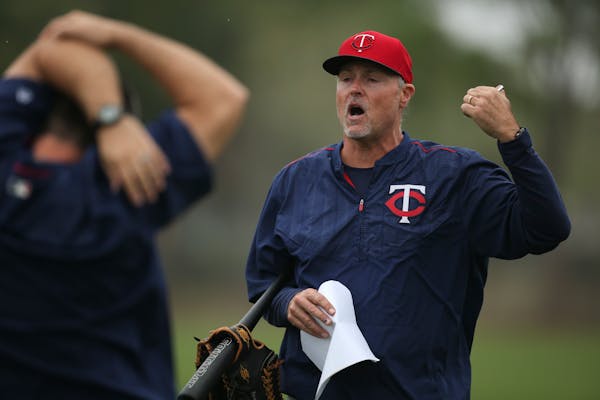Sometime in the next month or two, MLB Commissioner Rob Manfred will announce the punishment that the St. Louis Cardinals will receive for hacking into the Houston Astros' private database. The scandal has been an embarrassment for Major League Baseball, and resulted in the firing and prosecution of Cardinals scouting director Christopher Correa.
It's also made MLB teams more acutely aware of potential conflicts of interest, or even the appearance of them, in their front offices. Nobody is suggesting that other teams are resorting to subterfuge, but as executives move around the game, baseball is sensitive to any crumbling of the separation between teams and their increasingly sophisticated ways of doing business. The Twins say they were especially mindful of that fact when they hired new Chief Baseball Officer Derek Falvey and general manager Thad Levine.
"The principle is, you have only one employer at a time, and we absolutely respect that," Twins president Dave St. Peter said in October, as the wait for Falvey's arrival grew longer while the Indians advanced in the playoffs. Falvey had occasional conversations with team officials, but "anything beyond that would not be appropriate or viewed fondly by the commissioner's office."
The same principle applies now that Falvey and Levine are here. Both executives were open with their previous teams about their intentions, and Levine said he had "in-depth conversations" about what was Rangers proprietary information and what was not.
"I couldn't have a better relationship with [Rangers president] Jon Daniels. He and I have a ton of respect for one another. He knows there's nothing I would do to harm that franchise," said Levine, who worked for a decade in Texas. "Similarly, he knows I've done a lot of hard work for them, and if he can help me get a start here, at least at a walking pace, he was willing to do that. He and I had some very in depth conversations about the types of information he would be comfortable with me leaving with, and so that was all done above-board. It was done with an eye toward helping me — but not helping me too much."
Falvey and Levine are both aware of their former teams' evaluations of Twins' players; all teams compile that information about each of the other 29 teams every year. And while they are spending this week diving deep into their new roster, the opinions of potential trading partners can be almost as important as their own evaluations.
"Whatever we think of our players, that's somewhat secondary to what the industry thinks of them, if we aspire to use them as assets to improve the franchise," Levine pointed out. "That's a priority [at the general managers' meetings in Scottsdale, Ariz., this week]. We're going to immerse ourselves in an internal review of our players, but then also get busy finding out from other teams how they value our players."
